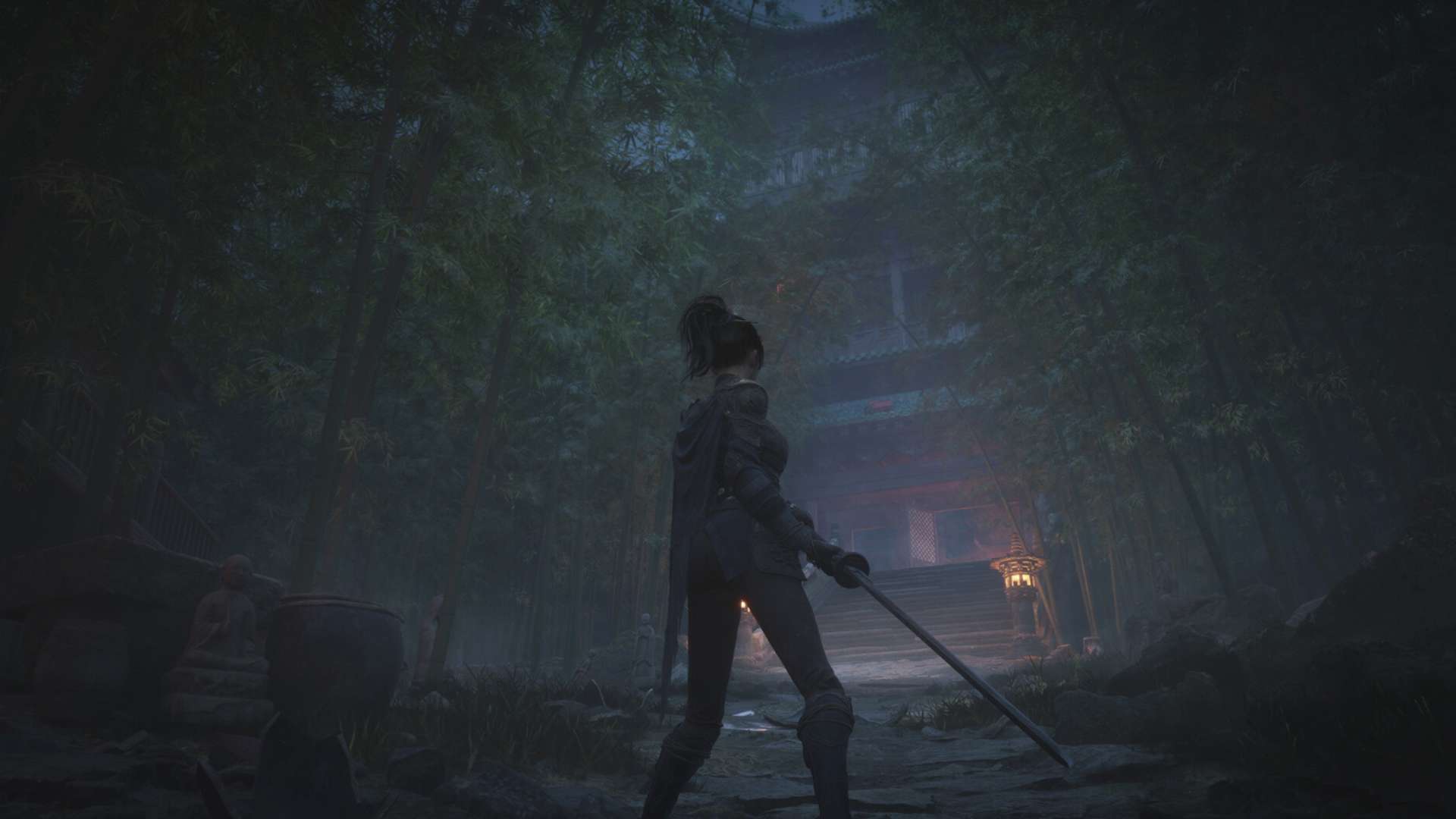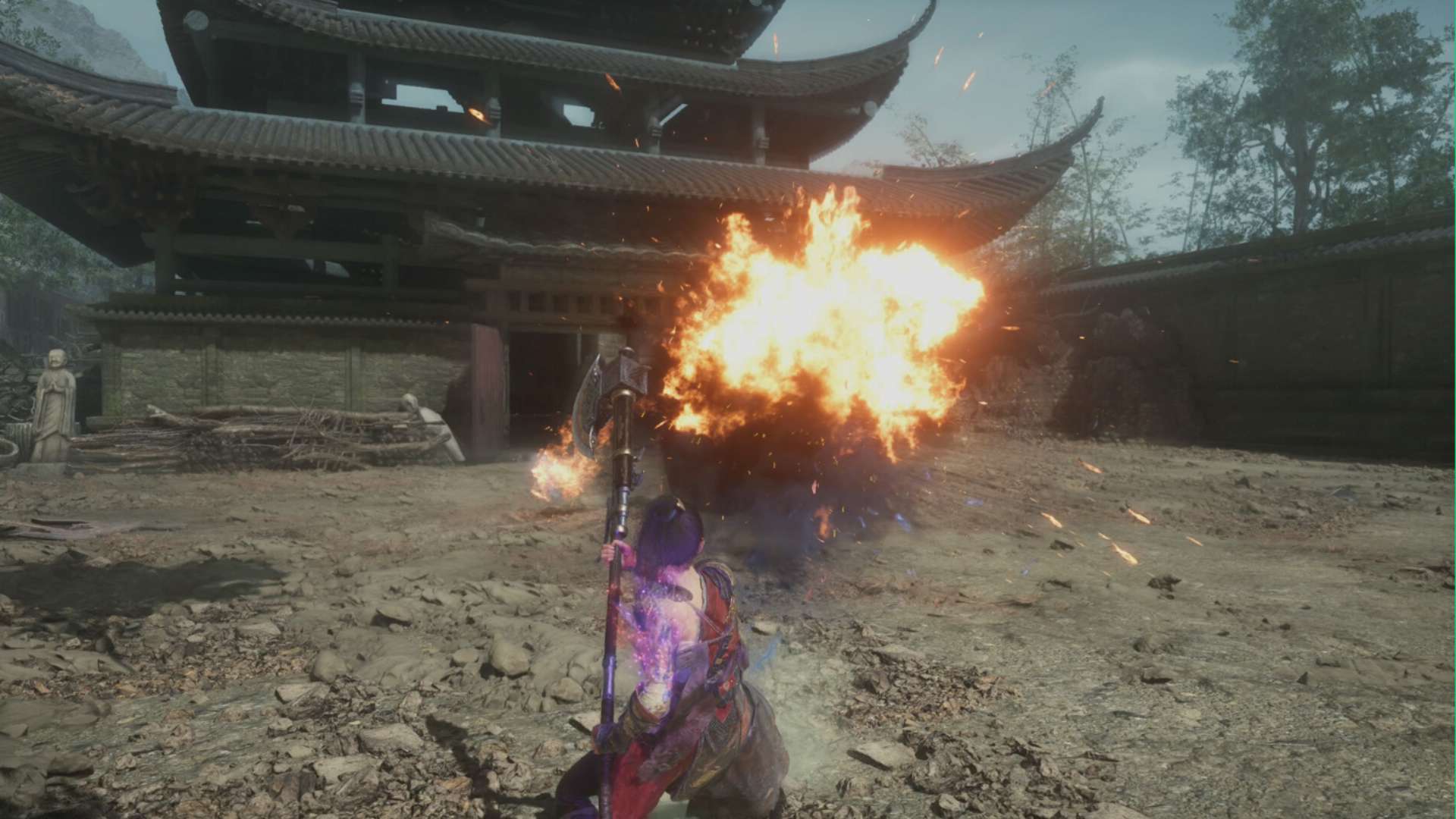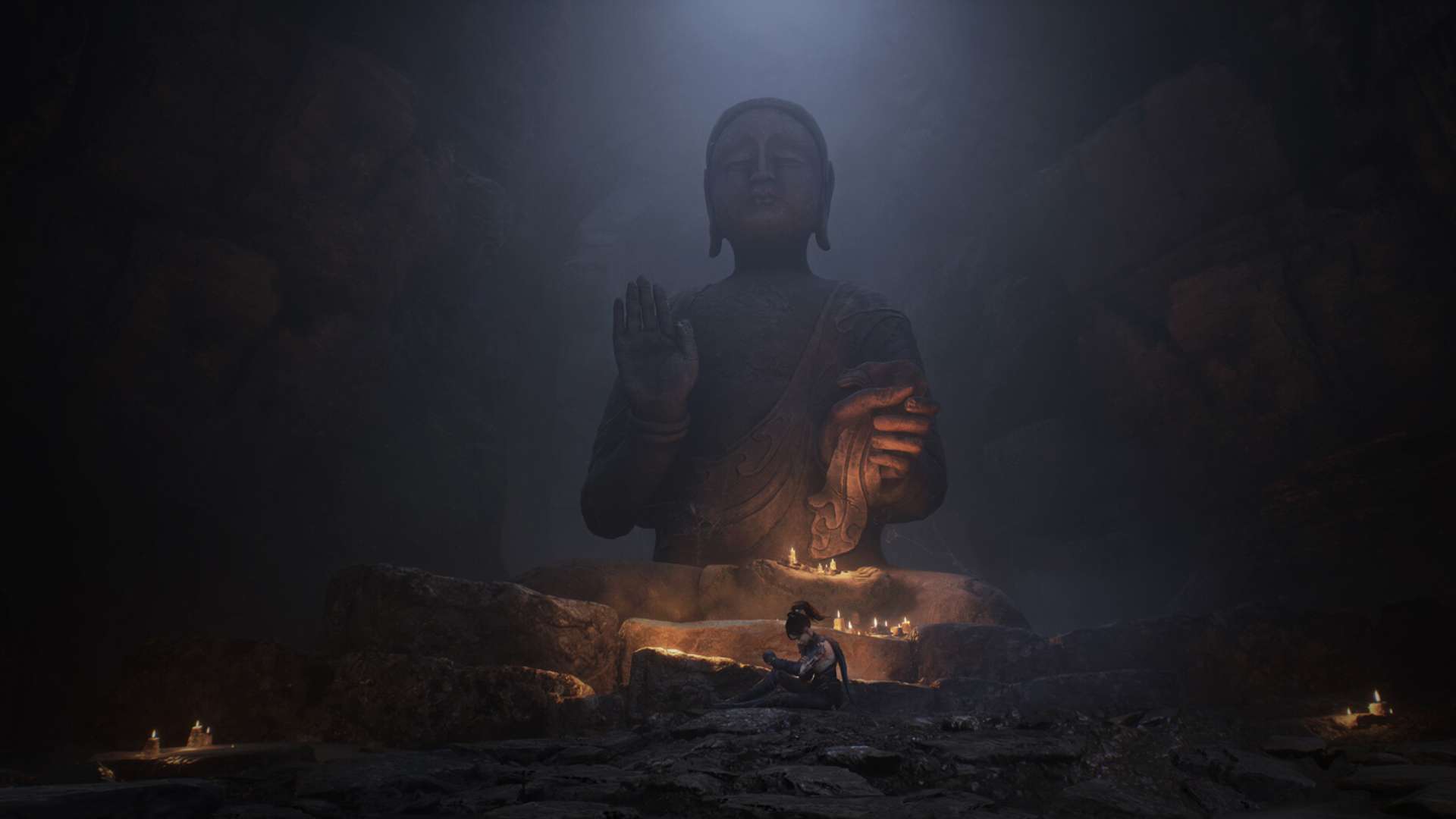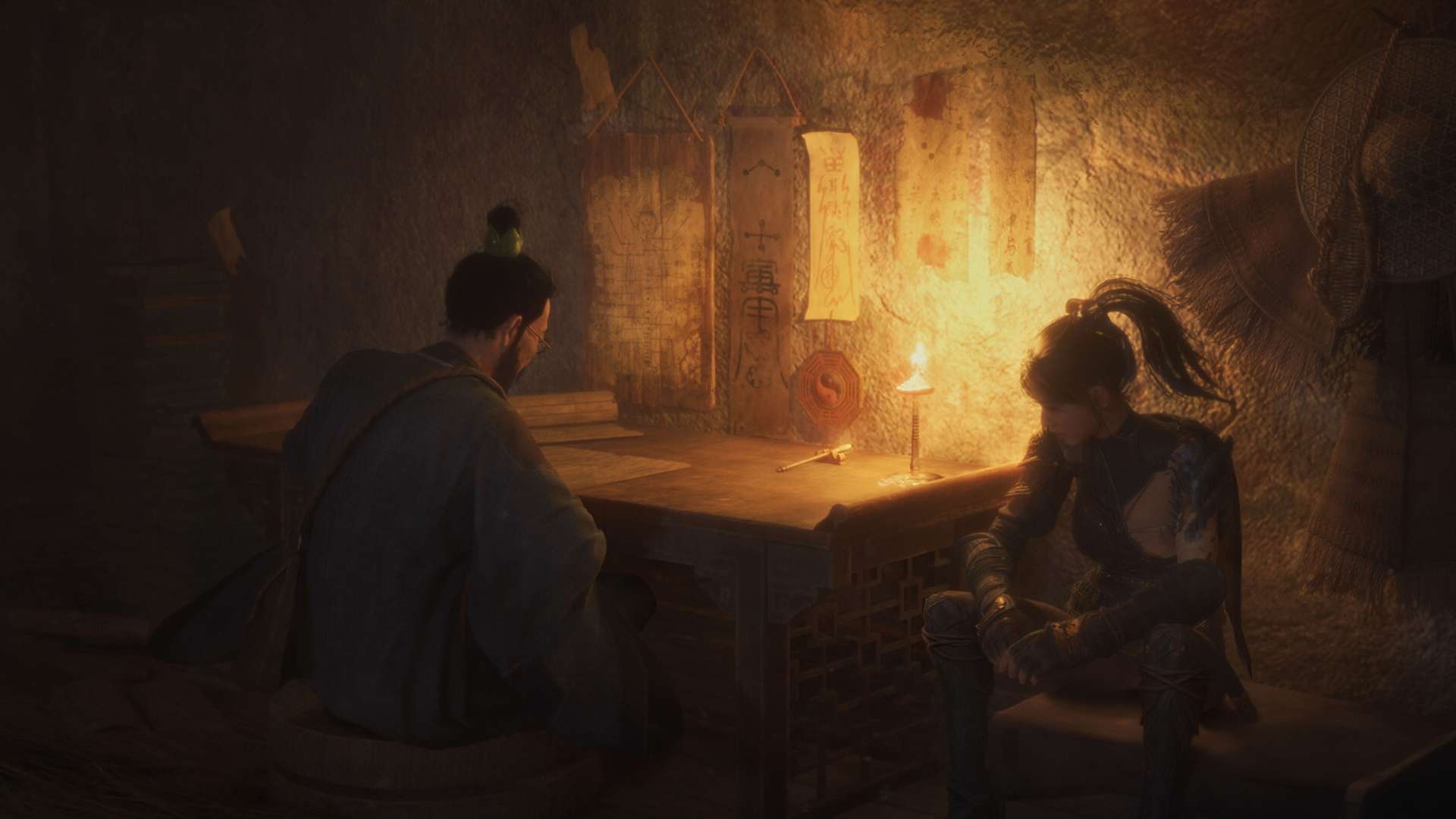A world in ruin, winding environments with looping shortcuts and tense combat. Yep, we’re back here again.
I should like WUCHANG: FALLEN FEATHERS. I really, really should.
I love me a Soulslike game. Ever since the first Demon Souls was whispered about on gaming forum as a word of mouth cult hit - I’ve been hooked.
From grainy youtube lets plays to the eventual release of Dark Souls 1 in 2011, I have been a fan. The genre has its hallmarks; grimy fantasy worlds in a state of decline, mythological monsters and mysterious plagues, sprawling environments that shortcut and loop back on each other, bonfires to rest at, limited healing resources and a strict stamina meter and stat system.
We are now over 15 years into the ‘Soulslike’ formula. I’ve rested at dozens of bonfires and pored through hundreds of item descriptions to decipher story beats. And now here is Wuchang: Fallen Feathers; the new action rpg from Leenzee - the latest game to lean all the way into the Fromsoft formula and see what new ideas can be beaten out of the dead horse.
Wuchang feels more in conversation with Fromsoft’s more action focused ninja epic, Sekiro: Shadows Die Twice than the core of the souls series. Just like Sekiro, you play a named character, Bai Wuchang, a female pirate who has woken up afflicted with a strange curse. A metaphysical plague has caused feathers to sprout from her arm, and others who have been ravaged by the same disease have shortly lost their mind and bearings. Not Wuchang though, who seems to have survived with her mind intact.

It’s up to Wuchang to traverse the land of Fallen Feathers, which pays homage to Chinese mythology in its environs and the monstrous creatures that inhabit it. Along the way - bonfires, bosses to throw your controller about at, obtuse npcs and vague lore tidbits designed to be unpicked over repeat playthroughs, multiple endings and a variety of different weapon styles and special skills to use in battle.
Fallen Feathers focuses heavily on its action combat by layering multiple resources, buffs and debuffs into its systems. Very early on you’re introduced to ‘Skyborn might’, a buff that can stack on Wuchang multiple times that will empower her various abilities to hit harder, and is also used as a resource for casting certain spells and abilities. Skyborn might can be generated through certain attack combos (i.e the second hit of your light combo on your long sword will gift you some skyborn might), and regularly charging it up is encouraged.

Weapon swings in combos (and some special abilities) can also clash together if you time them to hit when your enemy attacks you. For certain weapon abilities and combo swings, this can outright negate any incoming damage - allowing you to take advantage of very aggressive combo windows. It’s fun once mastered, especially in combination with abilities that allow Wuchang to regenerate health on hit.
The old mainstays of parrying and blocking that made Sekiro such a joy to play are implemented in a more frustrating fashion here. Both these core abilities are weapon skills, needing to be slotted onto an item to be used, and have limitations to their value. Unlike Lies of P or Sekiro, praying in Fallen Feathers is reserved for enemy weapon attacks only - fist moves, claws, punches, bites and magic attacks can’t be parried, and when aggressive bosses interweave these into their weapon attacks, it can feel extremely frustrating to try and nail a round of reflexive parrying in a way that simply doesn’t happen in more tighter Soulslike experiences.

Like Sekiro, elements of the souls’ series buildcraft have been flattened out into a skill tree system that splits off based on the weapon styles you’d like to specialise in. Each main weapon category has its own sub-tree in the level up screen, and the games experience currency can be converted into points to slot into this tree that are free to be respecced at will. Like souls games, this experience can be lost during death - requiring a corpse run to pick back up.
Unlike most recent souls games (hello Dark Souls 2, I see you!) death is punished in an intriguing manner in Fallen Feathers through the use of a madness mechanic. As Wuchang kills humanoid enemies or is killed in battle, she’ll accrue more ‘madness’ which eventually causes her eyes to glow a dark red. It also increases the damage you receive in combat, and our own damage output. An interesting risk/reward concept, but it leads to a few frustrations when you die multiple times while learning a new boss and find yourself now taking substantially more damage.
It’s not fun.
It’s these little niggles that start to add up to the sour experience at the heart of my time with Fallen Feathers so far. The early game is quite a messy bit of lopsided encounter difficulty, with some bosses feeling like tutorials that aren’t clearly explained (an early boss being a ‘clash’ tutorial stands out, especially if you walk into that battle not using a build or a weapon to take advantage of what the game wants to teach you in the moment) that will have some players bouncing off quickly.
Developers Lenzee are listening though, with a recent patch improving recovery times for Wuchang when knocked over and speeding up time it takes to chug down a healing potion. It’s little steps forward to make the game feel tighter and more responsive - but not enough to make me want to slog through what feels like very familiar and well trodden territory for the genre.

For some Souls fans, this game will be a real joy - a complex combat system with lots of intricate combos to learn and some truly fantastic level design and exploration to be had. For others, the quibbles and nibbles may not be enough to power past to ensure you’re well fed. You might just be better off diving back into Lies of P or Sekiro.
A copy of WUCHANG: FALLEN FEATHERS on PC was provided to SIFTER for the purpose of this review.